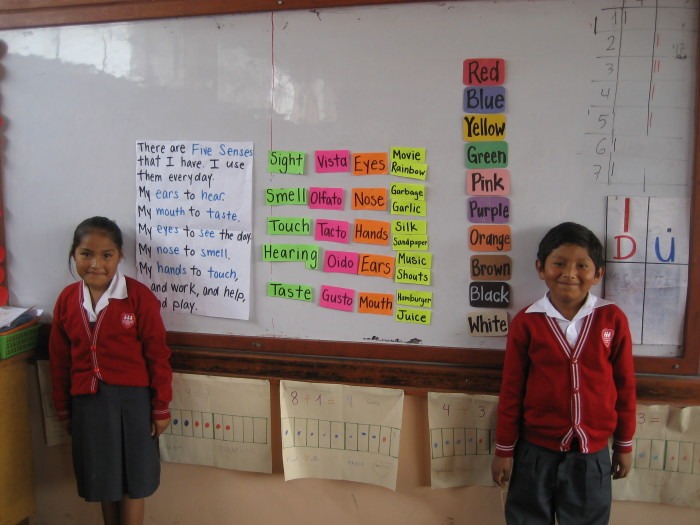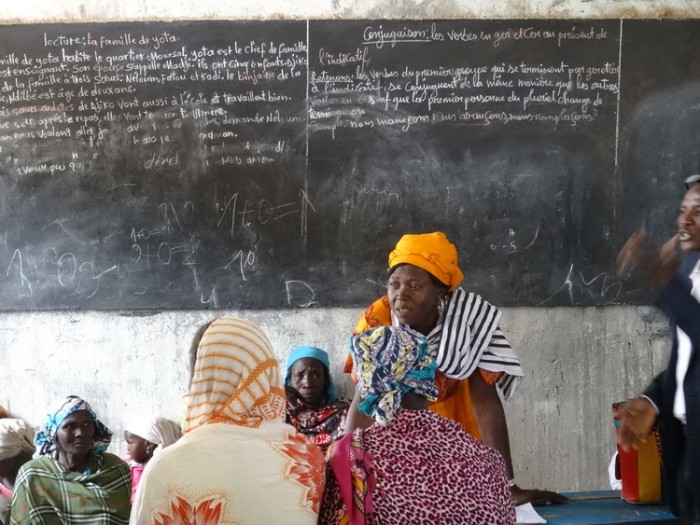As the World Economic Forum was taking place in Davos, Switzerland last week, the UNESCO – Global Education Monitoring Report team introduced a new publication named “Partnering for prosperity: Education for green and inclusive growth,” describing the transformative role that education and lifelong learning can play in fostering green growth.
Education can help make production and consumption sustainable, provide green skills for current and emergent industries, and orient higher education and research towards green innovation. At the same time, as the economy becomes greener, it must also become more inclusive. Prosperity must be conceived in ways that leave no one behind. Closer integration of education, economic and employment policies are essential for that change to happen.
“We need to reconceive what it means to prosper. The current prosperity enjoyed by pockets of people across the world has had a devastating impact on our natural environment and left too many people behind. Education is often held up as the panacea for poverty, and while there is little doubt that education increases income, reduces poverty and contributes to economic growth, there is an urgent need for us to rethink how we educate ourselves in order for our economies to become more sustainable and inclusive.”
If prosperity increases at the expense of the natural environment, which we all depend on for survival, then it is not prosperous at all. Ensuring sustainable and inclusive growth requires innovative and creative thinking, cultivated jointly by schools, universities, governments, civil society organizations, companies and local communities. Such an approach calls for learning that supports empowered, critical and competent citizens, who contribute to the realization of new forms of entrepreneurship and governance.
Education systems must also do more than just transfer knowledge and skills. They should tackle the urgent social, economic and environmental challenges we face. We need education that fosters inclusive values and attitudes, and supports our shared vision of a more equitable, just and peaceful world.
And while what we learn in school and universities is important, it will never be enough to secure a sustainable and equitable future for all. Given shifts in the global economy and technological innovation, we are facing a massive mismatch between existing worker skills and future labour needs, between qualifications and employment prospects. The global employment share of high skill workers has increased by almost 40% since 1990, and is estimated to account for almost 20% of the workforce in 2015. Over the same period, the employment share of medium skill work decreased by almost 10%, while the share of low skilled work rose correspondingly. The greening of industries will require continuing training and education for low- and medium-skill workers, often on the job; yet, as our Report shows, by 2020 the world could have 40 million too few workers with tertiary education relative to demand.
Thus, to make our economies more sustainable and inclusive, everyone must have opportunities to continue learning and acquiring skills throughout their lives. Most major decisions affecting our planet in the next 15 years will be made by people who have already left formal education. Continuing to learn throughout our lives is instrumental to creating shared and sustainable prosperity. Only then can we help those falling behind catch up, and ensure we’re all constantly challenged to reconsider the effect our daily lives are having on our planet.
The 2030 Agenda for Sustainable Development, which was adopted by 193 countries in September 2015, views the social, economic and environmental challenges of our time as indivisible. Fulfilling the Sustainable Development Goals (SDGs) requires integrated plans and comprehensive actions in which diverse sectors, types of actors and levels of government collaborate together.
In this new publication UNESCO demonstrates the need for:
- Enhanced cooperation – to ensure adequate financing, develop and diffuse technological innovation, and build capacity to implement national plans;
- Systemic improvement – to enhance policy coherence, build multistakeholder partnerships, and improve data, monitoring and accountability;
- Favourable macroeconomic conditions – including inclusive trade, debt sustainability and healthy investment.
For this ambitious agenda to be achieved, new and strengthened partnerships are essential. True prosperity cannot come at the expense of people or our planet. We need equitable, quality and inclusive education and lifelong learning opportunities for all.

